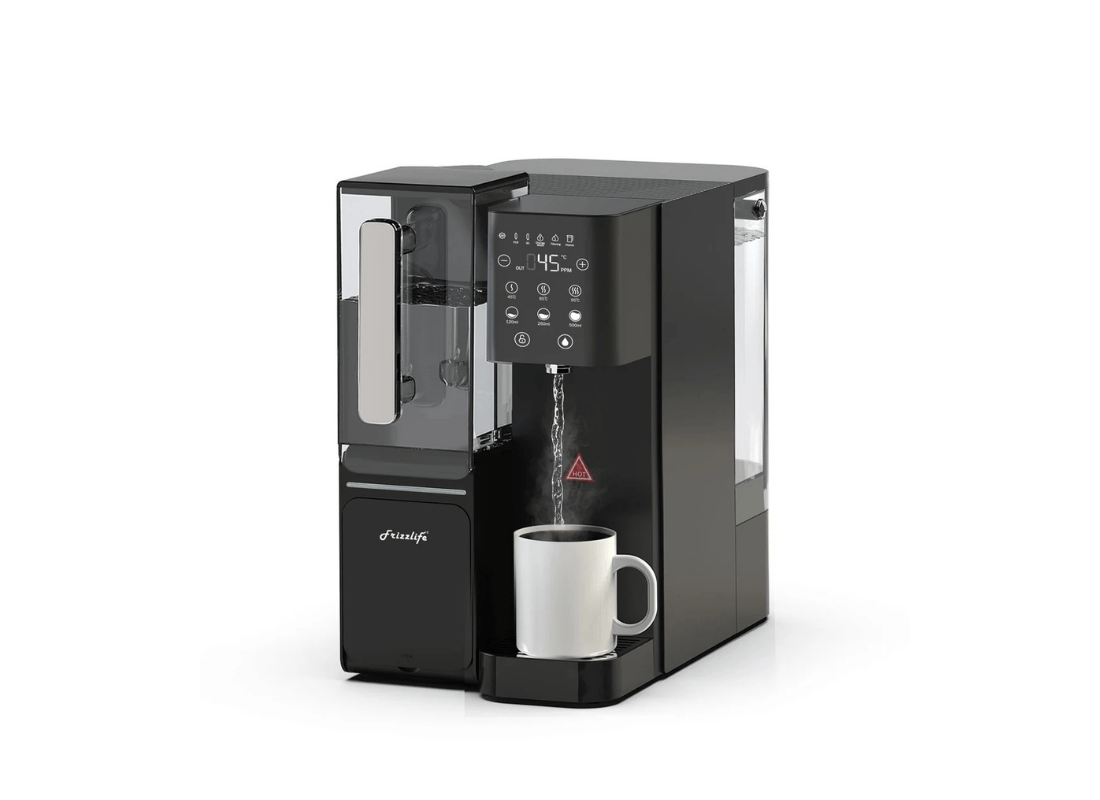
Alkaline Water Dispensers: Do They Really Offer Health Benefits?
Ever wondered if alkaline water dispensers are the secret to glowing skin, endless energy, and superhero-level hydration? Short answer: maybe—but don’t ditch regular water just yet! From digestion to detox, we’re diving into the Health Benefits of Using Countertop Water Dispensers to see if they’re worth the hype. Keep reading!
Introduction: Understanding Alkaline Water
Alkaline water has taken the wellness world by storm. Some claim it’s the key to better hydration, improved digestion, and even glowing skin. Others say it’s just another overhyped health trend. So, what’s the truth? Let’s break it down, from how alkaline water works to whether it actually delivers on its bold health promises.
What Is Alkaline Water?
At its core, alkaline water is simply water with a higher pH level than regular tap water. While normal water sits at a neutral pH of 7, alkaline water typically ranges from 8 to 9.5. This increase in pH is usually achieved through ionization or by adding minerals like calcium, magnesium, and potassium. Supporters believe this shift in pH makes the water healthier, but is there real science behind these claims?
Looking for an Alkaline Water dispenser? Check out this system from Frizzlife which also remineralises Frizzlife 500 GPD Tankless RO System with Alkaline & Remineralisation
Claims About Health Benefits
Fans of alkaline water claim it can do wonders for the body, including:
- Neutralising stomach acid to reduce acid reflux and heartburn.
- Boosting hydration for better energy and endurance.
- Providing antioxidants to fight inflammation and ageing.
- Supporting bone health by reducing calcium loss.
- Aiding metabolism and detoxification to promote overall wellness.
It all sounds promising—but does alkaline water actually live up to these expectations?
How Alkaline Water Dispensers Work
If you’re considering making the switch, an alkaline water dispenser is a convenient way to keep a steady supply at home. These dispensers work in two primary ways: ionization and mineral filtration.
Ionization Process
Water ionizers use electrolysis to separate water into acidic and alkaline components. The alkaline portion is then used for drinking, often containing hydrogen molecules that act as antioxidants.
Filtration and Mineral Addition
Some dispensers skip the electrical process and instead use filters infused with alkaline minerals like magnesium, calcium, and potassium. This method naturally raises the pH without altering the water’s molecular structure. Both systems claim to improve hydration and offer health benefits, but how much of that is fact versus fiction?
Potential Health Benefits
Acid Neutralisation
One of the biggest selling points of alkaline water is its potential to help with acid reflux. Some research suggests high-pH water can deactivate pepsin, the enzyme responsible for acid reflux, offering relief for those who suffer from heartburn.
Improved Hydration
Advocates argue that alkaline water has a smaller molecular structure, allowing it to be absorbed more quickly by the body. Many athletes swear by it for better hydration and faster muscle recovery.
Antioxidant Properties
Ionized alkaline water contains hydrogen molecules that may act as antioxidants, reducing oxidative stress and inflammation. However, experts debate how significant this effect really is.
Scientific Evidence and Research
Studies on Alkaline Water
While some small-scale studies support the benefits of alkaline water—especially for acid reflux and hydration—there’s still a lack of large, conclusive research. Most claims remain anecdotal, meaning personal experiences rather than proven science.
Expert Opinions
Many health professionals agree that drinking alkaline water isn’t harmful in moderation. However, they also point out that the body naturally regulates its pH levels, making drastic dietary changes unnecessary. At the end of the day, staying hydrated with any clean water is what truly matters.
Comparing Alkaline Dispensers to Other Dispensers
Filtration and Functionality
Alkaline water dispensers differ from standard water filters in that they either ionize water or infuse it with minerals. Traditional filters focus more on removing contaminants rather than adjusting pH.
Cost and Maintenance
Alkaline water dispensers, especially ionizers, can be quite pricey. They also require regular cleaning and maintenance to ensure proper function. If you’re simply looking for cleaner water, a high-quality filtration system might be a more cost-effective choice.
Addressing Common Concerns
Overconsumption Risks
Drinking too much alkaline water can reduce stomach acidity, potentially affecting digestion and nutrient absorption. Balance is key—moderation is always the best approach.
Long-Term Effects
There’s little research on the long-term impact of drinking alkaline water regularly. While it’s unlikely to cause harm in reasonable amounts, there’s also no solid proof that it provides dramatic health benefits.
Conclusion: Evaluating the Claims of Alkaline Water
So, is an alkaline water dispenser worth it? If you enjoy the taste and believe in the benefits, it could be a great addition to your routine. But if you’re expecting it to be a miracle cure, you might be disappointed. The bottom line? Stay hydrated, choose clean water, and remember—your body already does a pretty good job of balancing itself!
📱 We’re here to help. Message us via WhatsApp, give us a call on 0121 630 1130, or email info@regalflow.co.uk for expert guidance.
More Countertop Water Dispenser info we think you'll love
How Countertop Water Dispensers Improve Drinking Water Quality
Health Advantages of Filtered Water from Countertop Dispensers
Countertop Water Dispensers: Safe, Clean & Contaminant-Free Water
Encouraging Hydration: The Role of Convenient Water Dispensers
Why Choose a Countertop Water Dispenser? Exploring Health and Practical Advantages
The Health and Environmental Benefits of Countertop Water Dispensers


Leave a comment